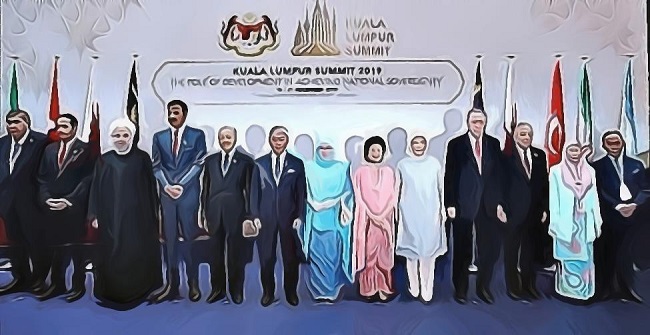Participating members of the Kuala Lumpur Summit last week have proposed a united cryptocurrency for Muslim nations. The key idea behind such a digital asset would be to manage and administer financial resources without relying too much on the U.S. dollar.
The Iranian president, Hassan Rouhani, speaking at the Kuala Lumpur Summit 2019 round-table session said about the idea of a Muslim digital currency:
“In the past, Prime Minister Dr. Mahathir Mohamad was seeking to introduce the (gold) dinar and today, with new technologies, we would be able to set up a new currency for the Muslim world to benefit and take profit from the advantages of cryptocurrency, and to support innovation, research and development in the technology sector.”
President Rouhani expressed his dislike for the “hegemony” of the United States financial regime and urged the attending representatives of the Islamic states to organize themselves and design appropriate measures and infrastructures through which the reliance on foreign powers can be minimized.
Iran is one of the few nations of the world which has been bombarded with economic sanctions by the United States and Europe for trying to develop its nuclear technology without accounting much for it. The development of a united cryptocurrency as a joint-investment venture could be one of the ways for economically suppressed nations such as Iran to bypass financial restrictions and sanctions.
Turkey and Malaysia seem to agree with the former with regards to mitigating the reliance on foreign currencies such as the U.S. dollar. This is not a precedent; nations such as Russia and Venezuela are already attempting to circumvent U.S.-imposed sanctions through crypto.
Dr. Mahathir has emphasized that trade and financial cooperation can be directly enhanced by agreeing on a common digital currency. He believes that with Turkey’s supremacy in digital infrastructure knowledge and experience, it can lead the rest of the Muslim world to reorganize beneficial financing policies of Islamic nations. Agreeing on a common virtual currency appears to be a significant step in that direction.
Nations and Crypto: It’s Complicated
Many nations around the globe have been skeptical about adopting digital currency at a national level. The conservative attitude towards the cryptocurrency arises out of the perceived view of digital asset as being decentralized and anonymous.
Authorities relegate the idea of discharging control and administration of financial assets of their citizens. Countries such as Saudi Arabia and United Arab Emirates have cautioned their citizens against buying Bitcoin(BTC)trade and other similar digital currencies (while trying to develop a cryptocurrency of their own).
The careful and skeptical attitude hints at just how difficult it is going to be for the Islamic world to agree on a common cryptocurrency, but perhaps a mutual financial interest might push them towards it.




